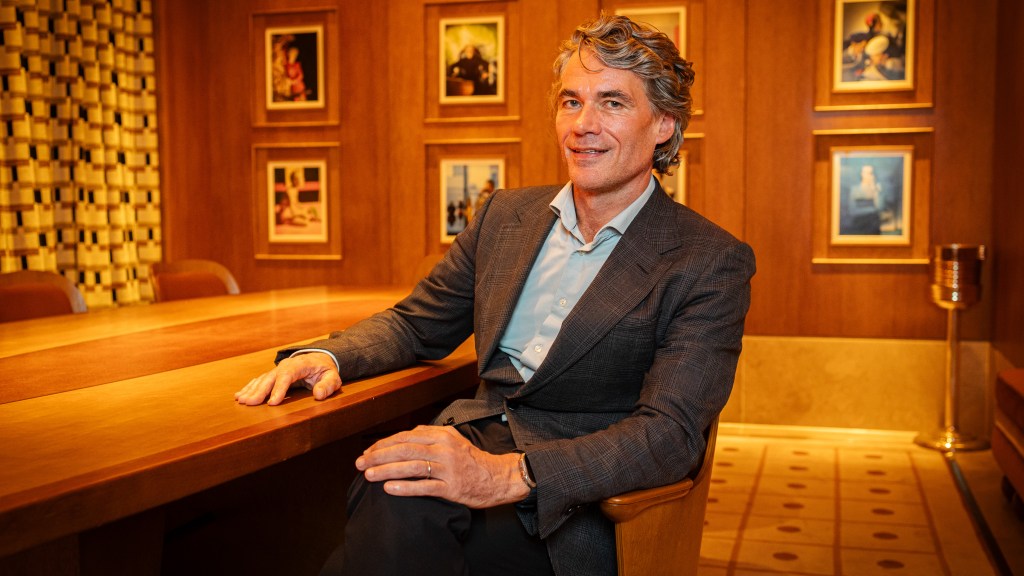Gavin Patterson Takes Charge at Alzheimer’s Research UK Aiming for Dementia Cure
Gavin Patterson, who previously led BT and served as a senior executive at Salesforce, has recently been appointed chair of Alzheimer’s Research UK, taking on the important mission of combatting the UK’s leading cause of death.
In a candid interview, the 57-year-old Patterson expressed his long-term commitment to this position, stating, “Over my lifetime, I’m hoping that we make a real breakthrough.”
Patterson’s new role adds to his existing non-executive appointments, including board memberships at online grocery retailer Ocado, the tech platform Kraken, and the educational platform Kahoot. He transitioned back to the UK two years ago after his tenure as chief strategy officer at Salesforce, a software powerhouse valued at $329 billion until 2023.
Speaking from The Park, a restaurant located near London’s Hyde Park, Patterson emphasized the critical nature of the mission for the nation’s health care system and economy. Unlike previous chairs of the organization, he noted that he has not had direct family experience with the disease, adding, “I’m unusual on the board because I don’t know somebody directly in my family who’s suffering from dementia… if nothing changes, one in two of us will be directly affected by dementia — either by caring for someone with the condition, developing it ourselves, or both.”
Former WH Smith and SSP Group CEO Kate Swann, who briefly held the chair position in 2022, shared her own experiences with dementia, highlighting the profound effect the illness had on her mother, whom she described as “a force of nature; the matriarch of our family.”
Despite the growing dementia crisis in the UK, which has nearly one million individuals currently living with the condition, there are no available treatments through the NHS to halt or prevent its progression. Alzheimer’s Research UK estimates the annual cost of dementia at £42 billion, with families bearing nearly two-thirds of that financial burden.

Since its inception in 1992, the charity has allocated over £237 million to dementia research, funding advancements in drug discovery, diagnostics, and the genetic understanding of the disease. Last year alone, investments totaled approximately £27 million.
The organization aims to double its income, which has grown to £57 million. Patterson’s formal transition into the role on February 12 follows a recommendation from David Mayhew, vice-chairman of JPMorgan’s global investment bank, who knows Patterson from his days at BT, where Mayhew served over a decade as chairman before becoming vice-president in 2023.
After a distinguished 34-year corporate career, including marketing positions at Procter & Gamble and Telewest, Patterson plans to leverage his extensive network to enhance funding and raise awareness about dementia, including its impact on lifestyle choices and employee responsibilities.
“It’s not as though dementia only affects people who are retired,” he remarked. “It can also impact individuals at an earlier age. Many caregivers are family members who may need to take time off work, making this a serious issue for employers to consider.”
Located at Granta Park, a scientific and technology hub in Cambridge, the charity is beginning to see the benefits of the research it has financed, according to Patterson, who stressed the persistent gap in treatment options and awareness concerning dementia’s causes.
In October, the NHS rejected the drug donanemab, developed by Eli Lilly, despite evidence showing it can delay the progression of Alzheimer’s by several months. The National Institute for Health and Care Excellence (Nice) stated the drug did not demonstrate value for the NHS, with cost-effectiveness estimates significantly exceeding usual thresholds.
Despite the acceptance of the drug by the Medicines and Healthcare Products Regulatory Agency (MHRA) for early-stage Alzheimer’s patients, it remains financially unreachable for most individuals. Similarly, another drug, lecanemab, was also denied NHS access despite MHRA approval.
Both medications aim to reduce amyloid plaque buildup in the brains of Alzheimer’s patients to improve memory and cognitive functions.

Patterson expressed concern regarding the disparity in funding for dementia compared to oncology, where significant advances have been made by pharmaceutical companies, resulting in more effective and economical treatments.
“When treatments are available, or access is limited due to budgets, it’s profoundly frustrating for patients and families,” he stated.
He also pointed to the promising role of artificial intelligence in expediting drug development, advocating for a mixed funding model that incorporates both paid and free services, although he noted that shifting perceptions on healthcare financing is challenging.
Patterson, a father of four with his American wife, reached this pivotal moment after deciding to step away from corporate leadership. “I finished at Salesforce in January 2023, and I knew I was ready for a change,” he reflected. “CEO positions are much tougher than they appear in terms of glamour and compensation, involving many sacrifices that can affect health and relationships.”
When Mayhew contacted Patterson, the board sought someone who could invest the necessary time and bring experience to the important role. “They were looking for someone with years ahead of them, and I hope to fulfill that,” he concluded.




Post Comment